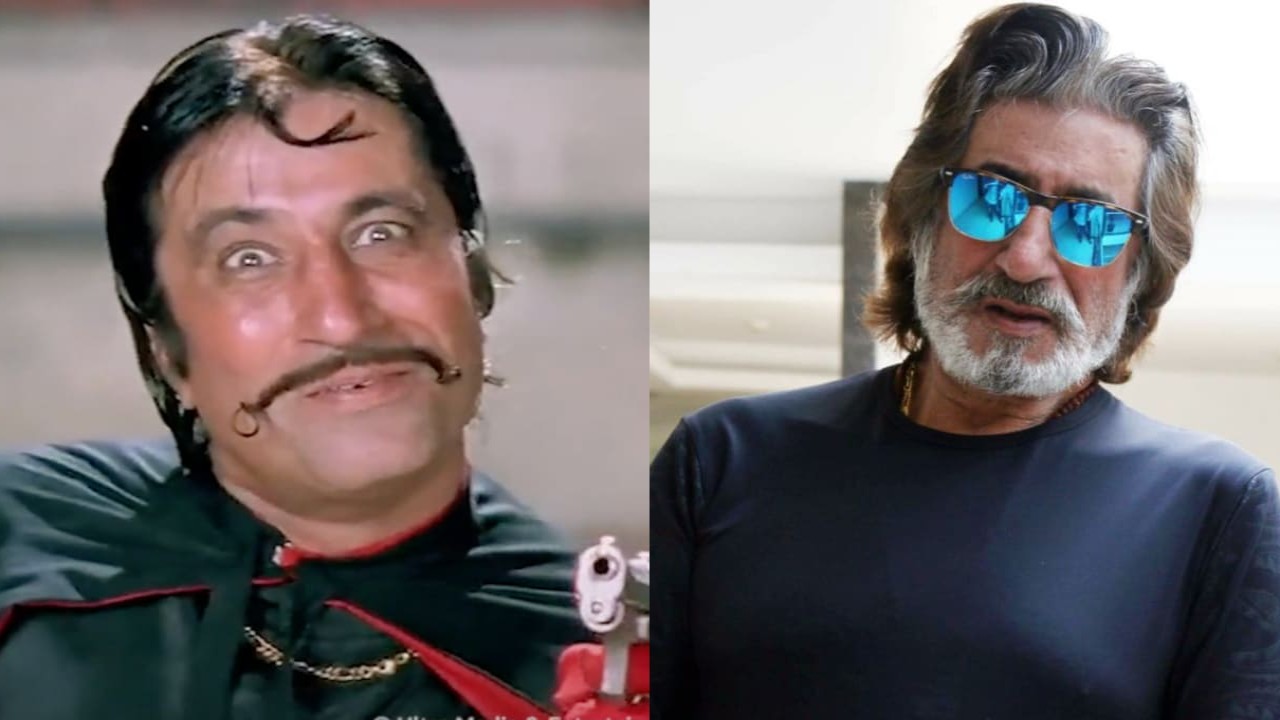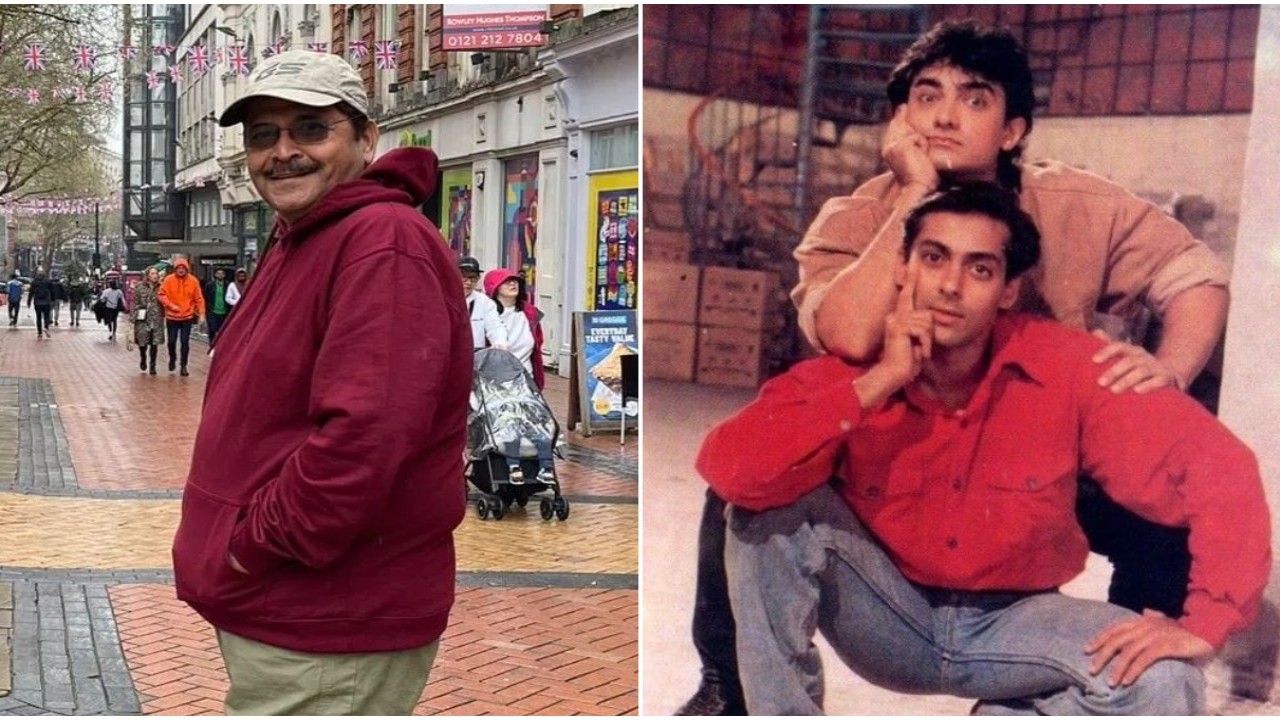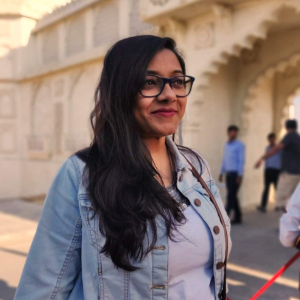Did you know Shakti Kapoor was not the first choice for Aamir Khan, Salman Khan starrer Andaz Apna Apna’s Crime Master Gogo?
In journalist Roshmila Bhattacharya’s book Bad Men, Shakti Kapoor reveals about not being the first choice for Crime Master Gogo in Andaz Apna Apna.

Shakti Kapoor is indeed one of the most iconic actors in Bollywood. It wouldn’t be wrong to call him the King of punchlines. As much as fans remember him for his acting, his movie dialogues too have a separate fan base. One of the most memorable dialogues is from the 1989 movie Chaalbaaz.
Remember this line? ‘Main ek nanha sa pyaara sa chhota sa bachcha hoon.’ In journalist Roshmila Bhattacharya’s book Bad Men, the actor recalls the story behind how this dialogue came to the forefront. Sharing the story from the sets of Chaalbaaz the actor revealed that co-star Anupam Kher asked him between shots if his wife Shivangi and he ever had disagreements like other couples. When he replied that they did, Kher prodded, “Phir kaun jhukta hai pehle?” (So, who accepts defeat first?) Shakti admitted that neither of them and he simply made his miffed wife laugh by saying, “Main ek nanha sa pyaara sa, chhota sa bachcha hoon.”
Kher found the line hilarious and suggested he use it in the film. “I was wary, but on Anupam’s urging, I spoke up. Pankaj Parashar, the film’s director loved it, the whole unit laughed, and that was how ‘Main ek nanha sa pyaar sa chhota sa bachcha hoon’ came to be incorporated,” he reveals.
In his first scene in the film, Shakti Kapoor, who plays Rohini Hattangadi’s brother Batuknath Lalan Prasad Maalpani (fondly called Balma), tries to get Sridevi’s scared, submissive avatar Anju to call him by his nickname. ‘Pyar se bolo Balma, zor se bolo Balma, gaa ke bolo Balma [Say Balma, lovingly, say Balma loudly, say Balma musically],’ he urges, even as she cowers in fright.
The words are repeated later in the film, by his tormentor and Anju’s daredevil twin Manju, who gives Balma a taste of his own medicine. “Sridevi had impeccable comic timing, and we had a wonderful tuning. It was her idea that I pronounced Balma in that distinctive way that she could imitate later. The gimmick caught on in a big way with the audience after the film’s release,” he smiles with satisfaction.
Shakti’s comic villain image, cemented by films like Himmatwala, Tohfa, Raja Babu and Loafer, was taken forward in the next decade by Priyadarshan’s films, from Hungama (2003, Tejabhai or Kachara Seth) and Hulchul (2004, Kashinath Pathak), to Chup Chup Ke (2006, Natwar Jhunjhunwala) and Malamaal Weekly (2006, Joseph). He reveals that when the producer of Hungama, Ratan Jain, suggested his name to Priyadarshan, the director from the South agreed instantly.
“Priyan Sir told me later that once, when we were both shooting in Ooty for different films, he had watched me from a distance and marveled that while just half a dozen fans hung around the hero, a big Bollywood star, more than 500 surrounded me for autographs, most of them women. He had decided that day itself that he would cast this good-looking villain in one of his films,” Shakti recounts.
Another director who made him unforgettable was Rajkumar Santoshi, with Andaz Apna Apna’s (1994) Crime Master Gogo. The cult classic turned the khalnayak into a comic superhero. Though short in footage and screen time, the character has had a long shelf life, going by his recall value. Interestingly, while Crime Master Gogo has become synonymous with Shakti Kapoor today, the role only came to him on the rebound because the original choice, actor Tinnu Anand, had to suddenly take off for a month-and-a-half to shoot for another film. Since he had left an expensive set standing at Bombay’s Film City studio, the actor was approached to take his place.
Back then, Shakti was doing three to four shifts a day, so the director let him decide for himself when he could shoot for the film. He usually reported late in the evening, and once, shot through the night. Many of Shakti Kapoor’s lines were improvised as they went along. Dialogues like ‘Aaya hoon, kuch to loot ke jaoonga’ [Now that I have come, I will steal something], ‘Mogambo ka bhateeja, Gogo’ [Mogambo’s nephew Gogo], ‘Gogo naam hai mera, aankhen nikaal ke gotiyan khelta hoon main’ [My name is Gogo, I take out eyeballs and play marbles with them], and ‘Jab koi bachcha nahin sota to uski maa kehti hai, so ja, so ja, so ja, nahin to Gogo aa jayega’ [Whenever a child refuses to sleep the mother warns him that if he doesn’t, Gogo will come]—the latter parodying Gabbar Singh’s cult dialogue in Sholay (1975)—are instantly identifiable with the Crime Master.
Roshmila Bhattacharya is a senior journalist. Bad Men is her fourth book after Bad Man, the Memoir of Gulshan Grover, Matinee Men: A Journey Through Bollywood, and Spooked! Bollywood’s Encounters with the Paranormal. Brought out in July by Rupa Publications, it is full of interesting anecdotes about iconic films, performances and dialogue, proves that even Bad Men can make for a good read.

EXCLUSIVE: Salman Khan, Aamir Khan's Andaz Apna Apna co-star Tikku Talsania on reports of stars not getting along on set; 'If I am against you...'





 JOIN OUR WHATSAPP CHANNEL
JOIN OUR WHATSAPP CHANNEL


























































